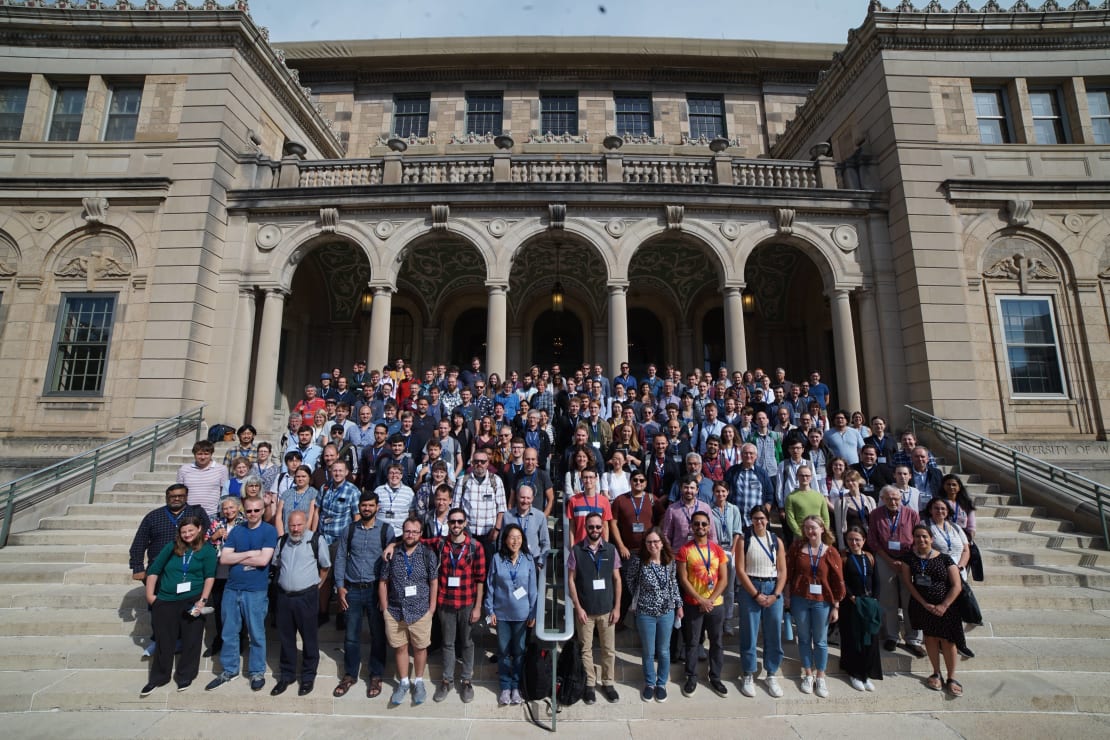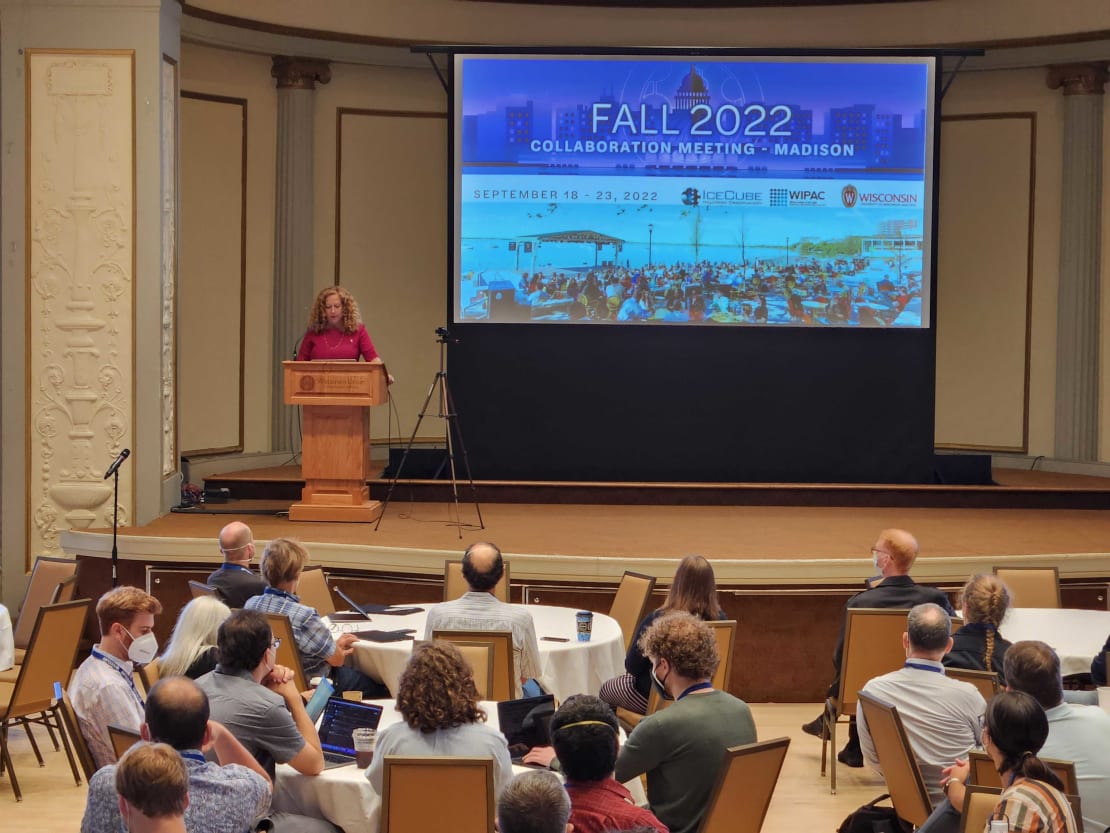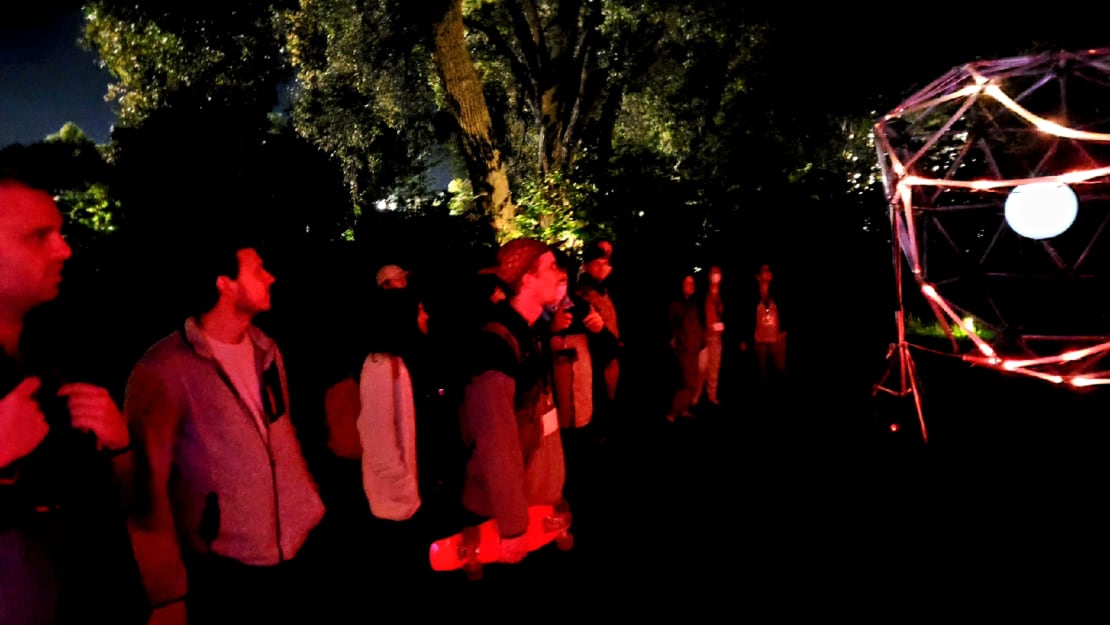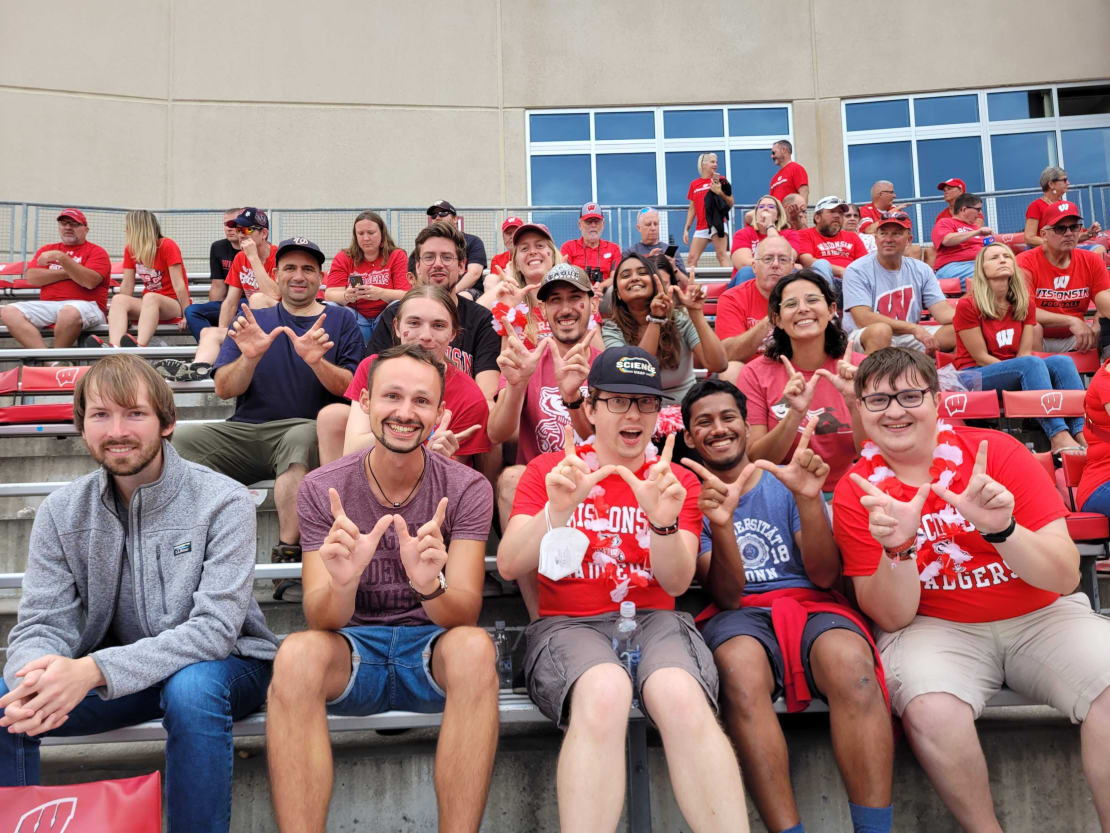
Last week, over 200 members of the IceCube community descended upon the University of Wisconsin–Madison for its fall collaboration meeting, which was hosted by the Wisconsin IceCube Particle Astrophysics Center (WIPAC). For the second time this year, the biannual collaboration meeting was held in person, with virtual offerings for those who could not attend. The meeting ran from September 18 through September 23.
Before the official meeting kicked off, several pre-meetings were held, including a discussion workshop for topics related to IceCube-Gen2, the planned next-generation expansion of the project. The workshop consisted of six rotating tables, each representing topics such as communication, environmental impact, and meetings, where participants discussed ideas as a group. This was the first time for this format, which overall proved to be fun, informative, and a great opportunity to meet other collaborators.

The meeting kicked off with opening remarks from UW–Madison’s Chancellor Jennifer Mnookin and UW–Madison’s Associate Vice Chancellor for Research in the Physical Sciences Amy Wendt. Throughout the rest of the week, discussions, talks, and special events were held, covering topics that included updates on the IceCube Upgrade, IceCube research results, software, calibration, and education and outreach.
Beyond science, there were plenty of activities and discussions for community building, including board game nights, a speed-networking session, an early career scientist lunch, and coffee meetups for women and gender minorities and LGBTQ + allies.
A discussion and listening session was also held in response to the recently-released NSF report on sexual harassment and assault at Antarctic US stations, which concluded that sexual harassment and assault are a major problem at NSF-run Antarctic stations. This was an important first step towards addressing the issues mentioned in the report.

On the final night of the meeting, participants heard from winterovers Josh Veitch-Michaelis and Martin Wolf and afterwards, visited the 2022 GLEAM light show at Olbrich Gardens, where art and science collide. WIPAC teamed up with long-time collaborator York University Art-Science Professor Mark-David Hosale to create an installation representing a tidal disruption event.

Participants also got to experience activities around Madison, including sailing and attending a UW–Madison Badger football home game.
“A few years ago we were thinking of doing a 10-year-IceCube celebration in Madison, but obviously that didn’t work out due to the pandemic,” said local meeting host Albrecht Karle, a UW–Madison professor of physics at WIPAC and IceCube associate director for science and instrumentation. “Having everyone come back together after a few years’ hiatus—at the Memorial Union as well as at the Overture Center, where we had celebrated the detector’s completion over ten years ago—reminded me how much we have missed these in-person meetings. Now it’s time to look forward again, and the event coincided nicely with wrapping up the rebaselining of the IceCube Upgrade project.”
The spring 2023 meeting is scheduled to take place at RWTH Aachen University in Germany.